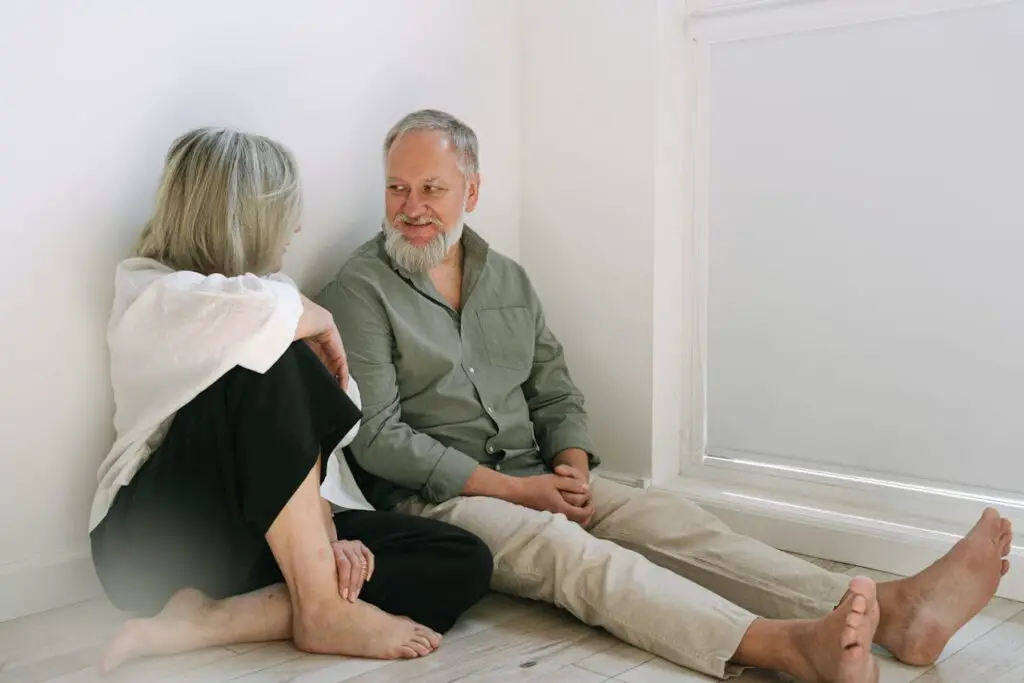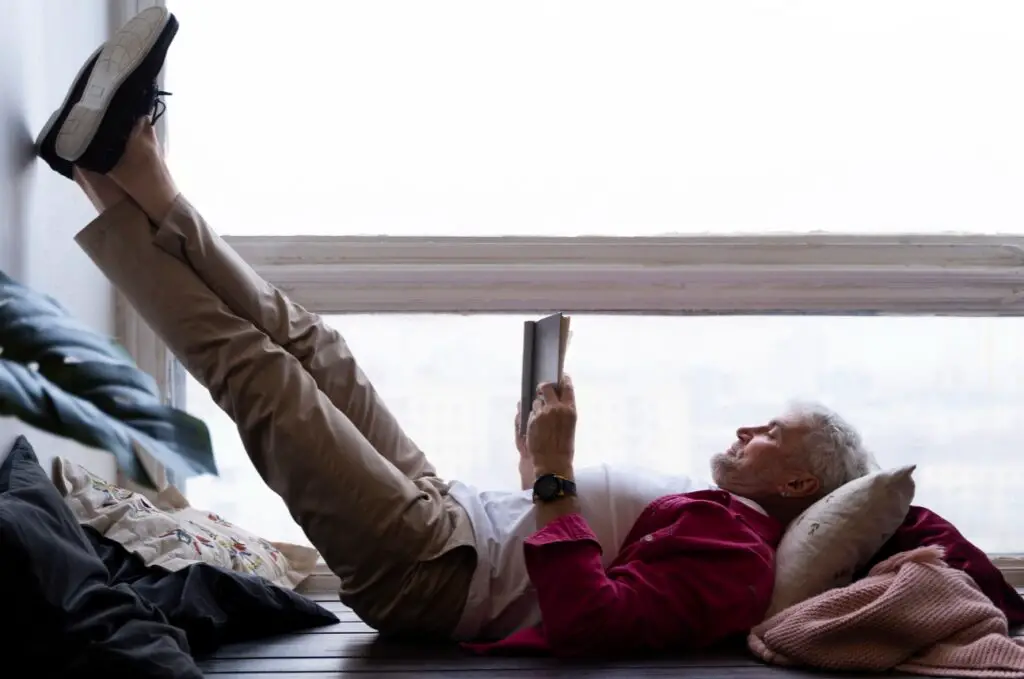8 Reasons Baby Boomers Lose Interest in Leaving the House—And What It Means

As baby boomers enter their retirement years, many are finding themselves less inclined to leave the comfort of their homes. While this shift might seem like a natural part of aging, it reflects deeper psychological, physical, and societal trends that are worth exploring. From health limitations to changes in social circles, there are multiple layers to this growing phenomenon. Understanding why baby boomers are losing interest in going out not only helps family members support them better but also reveals important insights about aging gracefully and maintaining a high quality of life. Here are eight compelling reasons baby boomers are choosing to stay in—and what each reason could mean.
1. Mobility Challenges and Chronic Pain

As people age, the body experiences natural wear and tear that can result in joint pain, arthritis, and other mobility issues. For many baby boomers, especially those living with chronic conditions, leaving the house becomes physically draining. Simple activities like walking through a park or attending a family gathering may no longer be comfortable or even manageable without assistance. These mobility challenges can lead to increased isolation, as they begin to associate outings with discomfort, fatigue, or frustration. Avoiding movement altogether can further contribute to physical decline, making it essential to introduce safe, at-home exercises and provide proper support devices to maintain some degree of independence.
2. Shrinking Social Circles

Over time, social networks naturally change. Retirement, relocation, illness, and the passing of peers can all contribute to shrinking social circles for baby boomers. Without regular interaction with friends or colleagues, the desire to go out and socialize starts to fade. A once-busy calendar of dinners and outings may become noticeably empty, leading to a cycle of isolation and inactivity. Without invitations or reasons to go out, staying at home becomes the default choice. This lack of social engagement not only affects emotional well-being but also cognitive health, emphasizing the need for intentional social connection, whether through community centers, clubs, or virtual platforms.
3. Anxiety and Mental Health Struggles

Mental health concerns in older adults are often underdiagnosed or misunderstood, yet they play a major role in behavior. For baby boomers, anxiety can stem from fears about driving, falling in public, dealing with crowds, or handling unfamiliar situations. Depression can also make the thought of leaving home feel overwhelming. Over time, the comfort of home becomes a safe haven, while the outside world is seen as unpredictable and stressful. This type of emotional withdrawal may go unnoticed by others, especially if the person is otherwise independent. Providing access to mental health support and creating low-pressure opportunities for social engagement can help ease some of these internal barriers.
4. Comfort and Convenience of Home

The modern world has made it easier than ever to stay home. With streaming services, online shopping, food delivery, video calls, and even virtual doctor visits, baby boomers can meet most of their needs from the comfort of their living room. The convenience factor is enormous, particularly for those who are less mobile or technology-savvy. When comfort and convenience are combined, the motivation to leave the house often takes a backseat. Although staying home has its benefits, overreliance on it can reduce exposure to new experiences and limit physical activity. Encouraging baby boomers to balance home comforts with real-world stimulation is key to maintaining overall health.
5. Disinterest in Modern Social Settings

Many baby boomers feel out of place in today’s fast-changing social environments. From noisy restaurants and crowded venues to tech-driven gatherings, the atmosphere may feel disconnected from their preferences. The younger generation’s cultural trends, pace of life, and reliance on social media can be unappealing or even alienating. When baby boomers do not feel included or valued in social settings, they may opt to avoid them altogether. This growing disinterest can result in a reluctance to attend events that do not cater to their tastes. Offering more age-inclusive activities or events that align with their interests—such as live music, history talks, or hobby groups—can reignite a desire to re-engage.
6. Financial Concerns in Retirement

Retirement often brings lifestyle changes, including adjustments to a fixed income. With the rising costs of living, healthcare, transportation, and entertainment, many baby boomers are watching their budgets more closely than ever before. The idea of spending money on gas, meals, parking, or event tickets may cause stress, especially when finances are tight. As a result, they may choose to stay home more often as a cost-saving measure. While being financially cautious is wise, too much restriction can lead to isolation. Communities and families can help by highlighting low-cost or free local events, promoting senior discounts, or organizing group activities that are affordable and enjoyable.
7. Health Safety Concerns After the Pandemic

The COVID-19 pandemic left a lasting impression on everyone, but older adults were among the most affected. Even with vaccines and safety measures in place, the sense of vulnerability has not completely faded for many baby boomers. Concerns about exposure to viruses in public spaces, particularly for those with compromised immune systems or pre-existing health issues, continue to influence behavior. What was once a routine trip to the grocery store now involves more anxiety and hesitation. This heightened caution has made many baby boomers reluctant to return to pre-pandemic habits. Promoting safe, outdoor, or socially distanced activities may help rebuild confidence and ease lingering fears.
8. Loss of Routine and Sense of Purpose

When baby boomers retire or experience life changes like becoming empty nesters, they often lose the structured routine that once kept them active and connected. Without a regular schedule or specific reason to get up and go out, time begins to feel unstructured and less meaningful. This lack of purpose can lead to boredom and a general lack of motivation. The longer someone stays in this cycle, the harder it becomes to re-establish routines. Helping baby boomers discover new passions, whether through volunteering, part-time work, or creative pursuits, can give them a renewed sense of purpose and a reason to step outside their comfort zone again.
Final Thoughts

The reasons baby boomers are losing interest in leaving the house are complex, but they are not insurmountable. With understanding and the right support, it is entirely possible to help older adults reclaim their independence, rediscover their passions, and rejoin the world outside their front doors. Whether it is through mobility assistance, mental health support, financial resources, or meaningful community engagement, the goal should be to ensure that aging does not mean retreating from the world—but rather adapting to it in a way that is empowering, safe, and fulfilling. Encouraging baby boomers to take small steps—like joining a walking group, attending a local event, or reconnecting with old friends—can lead to profound changes. When older adults feel seen, supported, and included, they are more likely to re-engage with the world around them. This can improve their mental health, physical well-being, and overall satisfaction with life. With the right environment, tools, and encouragement, staying home does not have to mean staying out of life.
Leave a Reply